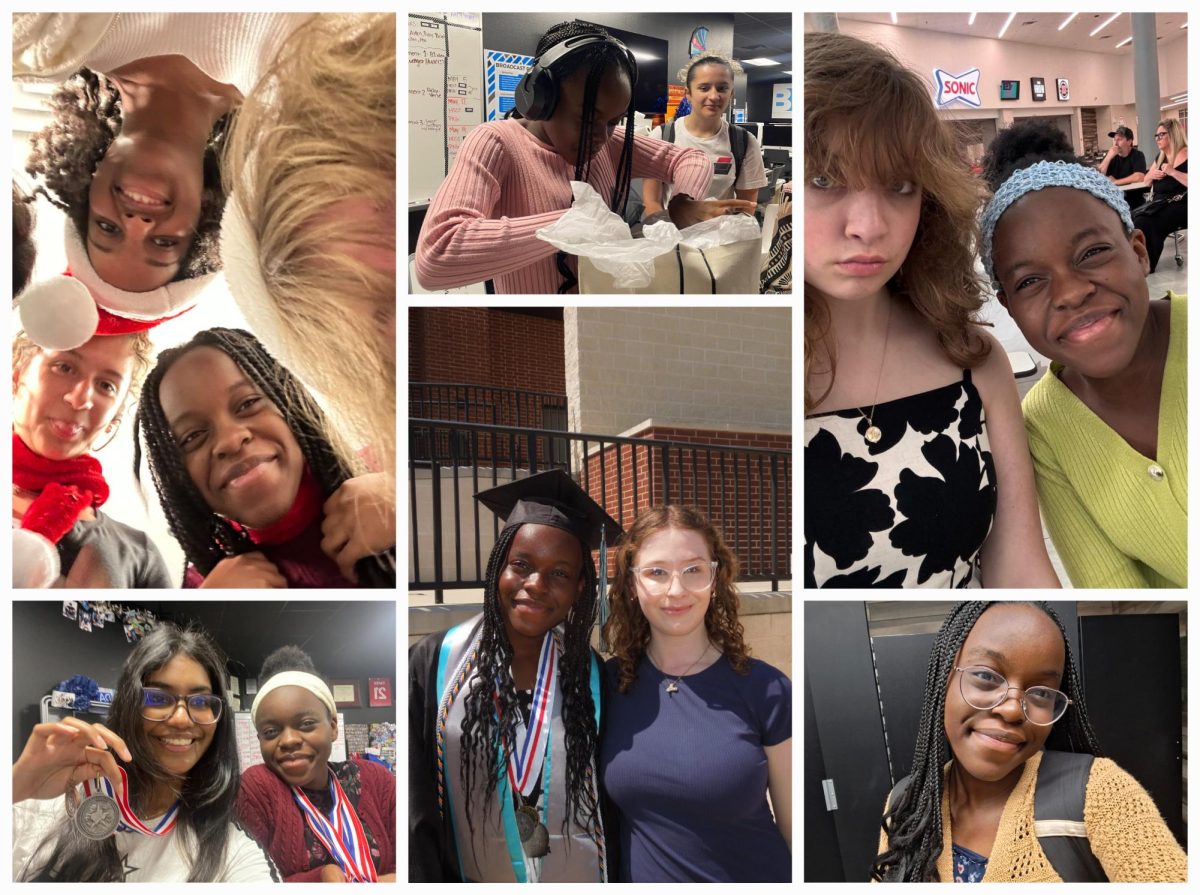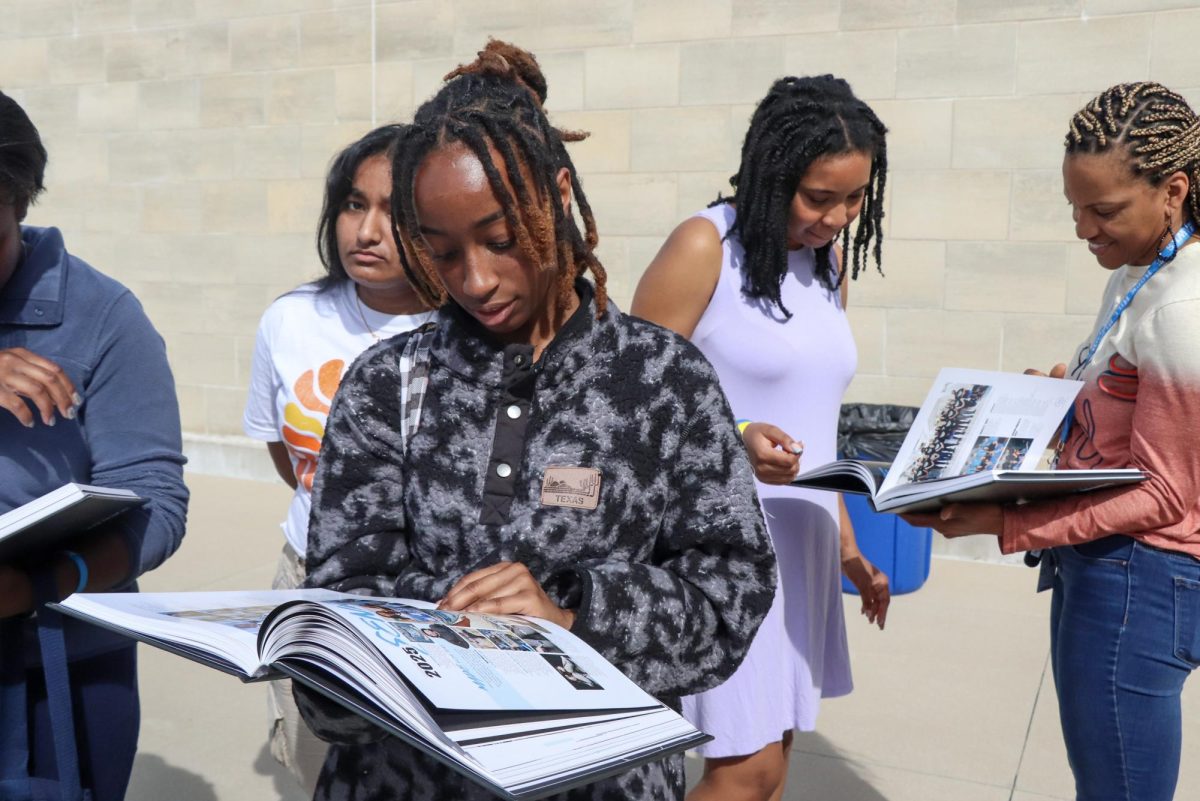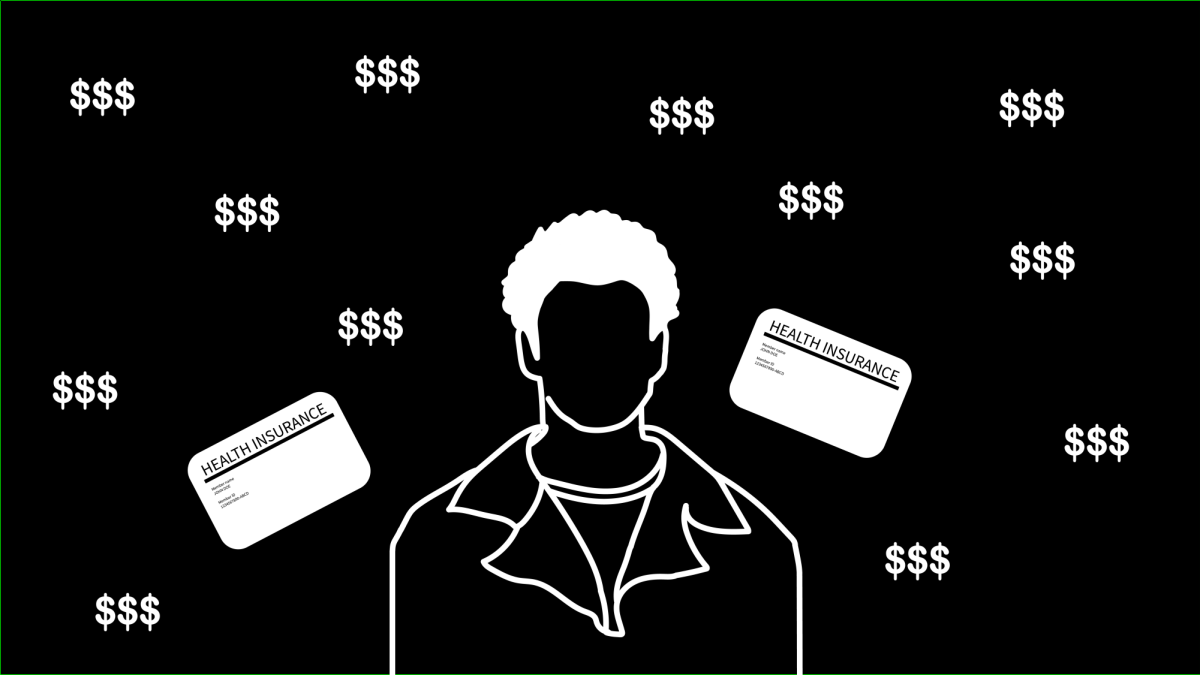The cosmetic surgery industry has witnessed a staggering 19% increase in procedures since 2019.

A growing number of individuals are opting for cosmetic surgery and procedures with the desire to align their appearance with transient beauty standards. Cosmetic surgery, driven by profit and societal pressures, reinforces these unrealistic beauty standards, perpetuates insecurities, and poses significant risks. (In this article, cosmetic surgery refers to all cosmetic procedures– both invasive and noninvasive.)
The internet and its obsession with beauty standards
The internet, particularly platforms like TikTok and Instagram, has become a breeding ground for the perpetual evolution of beauty standards. Each passing week witnesses the emergence of fresh beauty microtrends and labels, ranging from “girl pretty” and “boy pretty” to “deer pretty” to “model pretty.” Alongside these, side profile trends and numerous others contribute to the ceaseless cycle of beauty ideals.
“Social media is one of the most influential platforms in our generation,” junior Madi Martinez said. “We are constantly pushed by trends and standards. For example, popular social media platforms like TikTok really create a drastic change in beauty standards. With new trends that target physical appearance, anyone would be willing to do anything to achieve that ‘it girl’ or ‘perfect girl’ or ‘hot guy’ look.”
The pervasive allure of achieving a “glow up” amplifies this fixation, creating an environment where individuals feel compelled to conform to the latest aesthetic trends. In this digital age, the internet not only reflects societal beauty expectations but actively shapes and perpetuates them.
Disturbingly, this fixation on aesthetics is infiltrating younger demographics, with high school students contemplating procedures like nose jobs. From 2020 to 2022, there was a 16% increase in teenagers undergoing cosmetic procedures.
“I have considered getting plastic surgery because of my insecurities,” Martinez said. “Most of the alterations I dreamed of were to achieve an hourglass figure. I considered plastic surgery in hopes that my insecurities would go away and that I’d feel comfortable in my body. As time progressed, my mind towards getting plastic surgery changed but sometimes I still think about it.”
The role of influencers and celebrities
Cosmetic surgery is now more accessible than ever. Once exclusive to celebrities, a general reduction in prices and advancements in safety has made it available to the general public.
In the past, plastic surgery was discreet, with little to no advertising. However, a quick scroll through Instagram or TikTok reveals a new trend – influencers actively promoting various procedures, from lip fillers to other cosmetic enhancements. This increased visibility actively contributes to the normalization of cosmetic surgery.
A study found that exposure to cosmetic surgery content on social media, combined with prolonged platform usage and low self confidence, is linked to an increased likelihood of considering cosmetic procedures in the future. Due to their impressionability, teenagers, particularly, are more susceptible to these influences.
“As a teenage girl in a society like ours, I think it’s very hard not to be pressured by beauty standards because it’s not just seen on social media, but in my environment,” Martinez said. “Teenagers at school strive to have the perfect body, hair, makeup, and styles, and it’s something that can affect others because we want to look like each other and we want to be the ideal girl.”
Despite many influencers projecting messages of self-love and acceptance, many seamlessly pivot to endorsing cosmetic surgery for financial gain, creating a stark dichotomy between preaching body positivity and encouraging potentially drastic alterations.
The irony is blatant: witnessing an influencer affirm my beauty in one video, only to scroll down and watch them advocate for altering my appearance. “Wait a minute– didn’t I just hear that I was beautiful just the way I am?”
Shifting the gaze from influencers to celebrities reveals that some celebrities continue to keep their procedures shrouded in secrecy. The Kardashian/Jenners, for instance, have been known to hide and deny cosmetic procedures they’ve had done.
On the other hand, celebrities like singer Dolly Parton– who notably said, “if something is bagging, sagging, or dragging, I’ll tuck it, suck it, or pluck it”– are praised for their transparency.
But is this transparency a good thing?
Does their openness about cosmetic procedures stem from genuine intentions, or is it a strategic move to control the narrative? It’s as if they want to beat us to the punch. Better to say it now and get praised as an ethical queen than to be caught by internet detectives later.

Even then, the transparency is surface-level, with celebrities casually discussing their transformations, emphasizing personal empowerment with statements like “It makes me feel good about myself” or “I’m doing it for me.”
Internet users want to get rid of the stigma surrounding cosmetic surgery. While cosmetic transparency can help people feel better about not meeting the impossible beauty standard, it reinforces the notion that altering one’s appearance is the norm, contributing to the ongoing cycle of unrealistic beauty standards and steering away from the acceptance of diverse natural appearances.
Cosmetic surgery should continue to be stigmatized. Because there is nothing empowering about altering your body for the approval of others.
Decoding autonomy
And yet, cosmetic surgery is being marketed as empowering. This keeps the industry alive, as many seem oblivious to the conflicting nature of beauty standards cloaked in the rhetoric of empowerment.
For example, it’s been described as “self-care,” “self-love,” beauty on “your own terms,” and “becoming the best version of yourself.”
However, this narrative is at odds with the very essence of the procedure itself. Distancing yourself from your natural features is not becoming yourself. It’s the opposite.
Women disproportionately bear the brunt of societal beauty standards, constituting a significant majority of cosmetic surgery patients– 93% in 2022.
The argument often raised by choice feminists is that it is a personal choice, therefore it’s okay. But where do we draw the line between individual autonomy and the obviously negative societal implications? Should we encourage people to permanently alter their face because it’s “their choice?”
Because it is never really your choice if you were conditioned to do so; it was never really your choice if you were taught that you needed to be beautiful and align with made-up beauty standards. No one came out of the womb thinking their lips were too small, and no one ever wished for a facelift in their high chair. Our natural understanding of beauty remains unaffected until we are surrounded by a culture that dictates what is considered attractive.
Allegedly, anyone who wants to break the cycle is not being a “girls’ girl,” or not supporting girls having a freedom of choice. Succumbing to the cosmetic procedure industry perpetuates the notion that women’s worth is tied to their looks and how youthful they appear.
If the surge in cosmetic procedures really was just a matter of personal choice devoid of external pressures on women, then why is it that men account for just 6% of cosmetic procedures undertaken? This disproportion directly points at the gendered nature of beauty standards, where societal norms weigh more heavily on women’s shoulders.
As beauty reporter Jessica DeFino puts it, “Beauty culture loves to tell us — and we love to repeat — that manipulating our physical beings to better conform to beauty standards is an exercise in agency. I do it for me! A woman should be able to do whatever she wants to her own face and body! It’s our choice! Yet when an alternative is presented — for instance, divesting from standardized beauty entirely — the general response is: But physical beauty affects how we’re treated in the world! It’s an act of survival! The agency we so desperately cling to in defense of beauty culture suddenly disappears.”
The beauty industry wants to convince us of autonomy, because it creates a false sense of consumer empowerment. This conceals the industry’s influential role in shaping and perpetuating harmful beauty standards– it frames the narrative as if we’re the ones eagerly seeking transformations and they’re just benevolent helpers. This autonomy pitch helps the industry dodge any criticism, and puts all the blame on us. Ultimately, this facilitates the industry’s market expansion and boosts its sales.
Because at the end of the day, that’s all it is– a money grab.
The beauty industry
The beauty industry’s concern was never about your appearance or confidence but rather your wallet.
The industry operates on a paradoxical model: it manufactures problems and then conveniently offers solutions for a price. For example, it deemed aging, a natural and inevitable human process undesirable, and consumers blindly followed the narrative and bought into all of the anti-aging products and procedures.

The beauty industry runs campaigns “celebrating diverse beauty” and telling women to feel confident in their own skin, yet urges them to stick syringes under that same skin. It’s an attempt to play both sides of the coin – presenting an image of inclusivity while profiting from the insecurity cultivated by societal beauty standards.
Besides the mentally damaging and confirmative nature of cosmetic surgery, there is a lot of risk that comes with these surgeries, such as botched procedures, infections, blocked blood vessels, and even permanent disfigurement.
Most cosmetic surgery is irreversible, though procedures like lip filler and Botox can be dissolved. Even then, things don’t quite go back to normal. And failed procedures can require even more procedures to get it fixed.
The pursuit of an ideal face isn’t worth regret, the associated risks and potential complications.
The narrative propagated by some plastic surgeons, particularly when promoting procedures for teenagers, is deeply problematic.
“I had a chance to see my patients with heads down, messy hair, shy, hesitant speaking during the preoperative examination; and then to see with heads up, styled hair, sociable, self-confident, refined nose, and fine make-up after the nose job,” Dr. Suleyman TAS said in his blog. “Seeing wonderful life-changing moments makes me happy.”
This doctor attempts to rationalize cosmetic surgery as a solution to issues teenagers face in expressing their character and dealing with societal expectations, saying that “rhinoplasty raises self-esteem” and that a request for rhinoplasty “will boost success.” But by linking appearance directly to success, harmful narratives form that prioritize external beauty over genuine well-being. It sends the message that conforming to societal norms matters more than fostering self-acceptance, and that procedures are the answer to these internal problems.
Does beauty play a role in shaping self-esteem for many people? Yes. However, that doesn’t mean we should reinforce that idea; instead, we should actively challenge it.
In a world that desperately needs positive messages about self-acceptance, this narrative is a step in the wrong direction. We need to resist the notion that a scalpel is the solution to women’s struggles and insecurity, or that success hinges on conforming to unrealistic beauty ideals.
But while dissecting the destructive messages and societal pressures pushing people towards plastic surgery, it’s important that we shame the system, not individuals striving to fit into a mold they didn’t create.
“Conforming to standards through plastic surgery shouldn’t diminish an individual’s self-worth whether they had a large procedure or not,” Martinez said. “They’re still beautiful inside and out.”
It’s time to challenge the damaging narratives that equate conformity to societal beauty standards with empowerment. Physical appearance has nothing to do with self-worth. And all in all, nothing is empowering about erasing your natural features.


















Shreya
Feb 29, 2024 at 12:15 pm
Love this piece!
Tolulope Oyesanya
Mar 2, 2024 at 11:28 pm
Thank you!